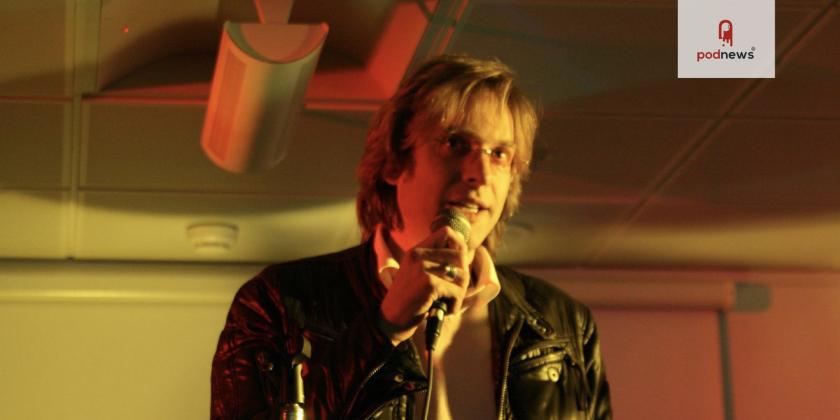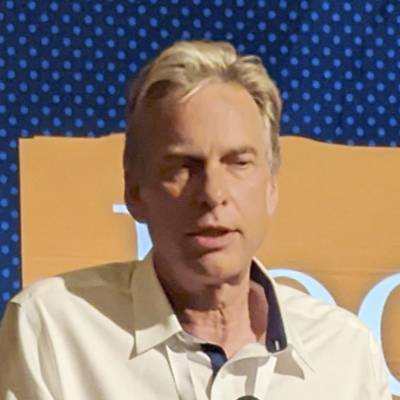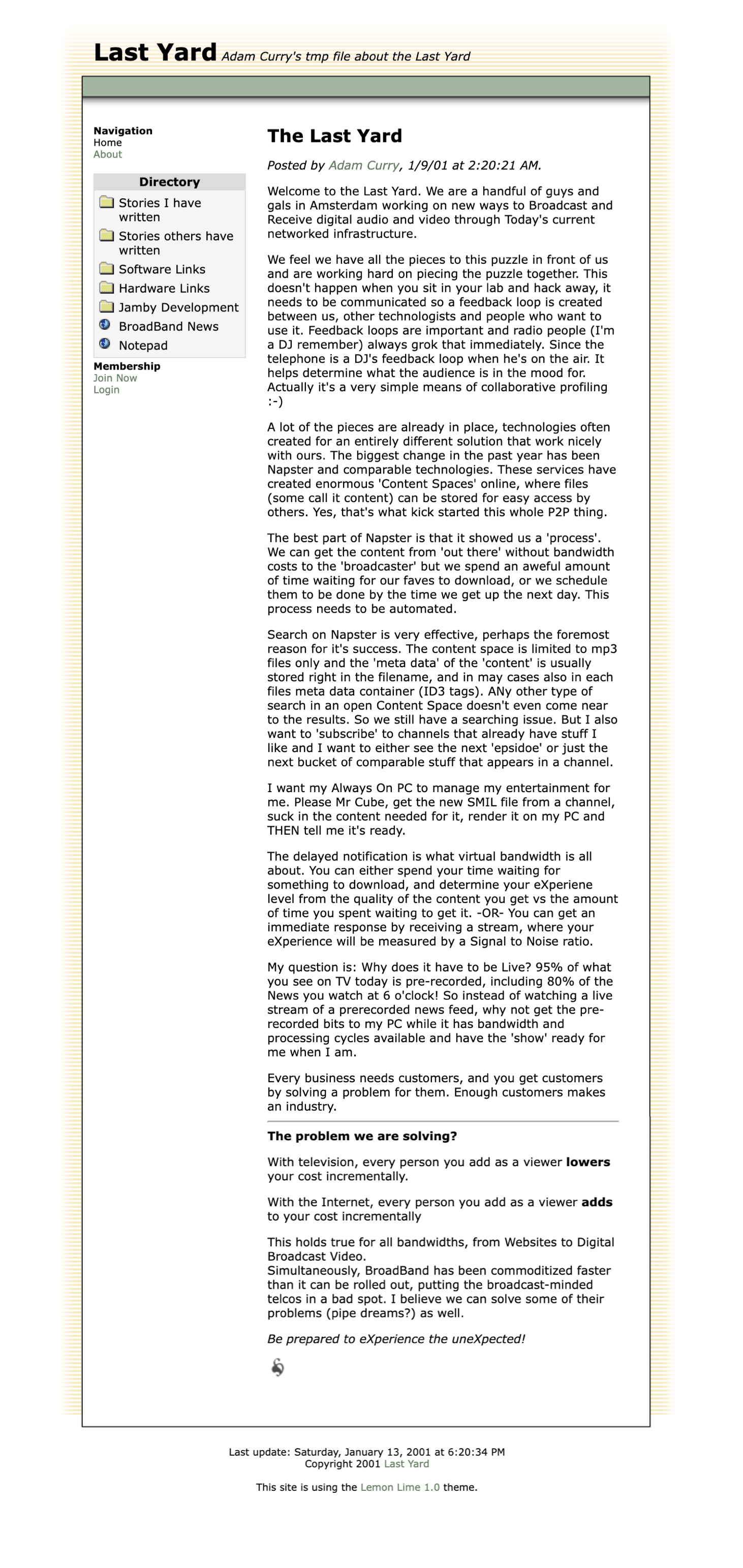
The Last Yard - the blog post that started it all

As researched by Eric Nuzum, podcasting came into reality in a New York City hotel room. Dave Winer was meeting with Adam Curry, who wanted to share an idea he’d had. He’d blogged about the idea: one that led to podcasting. Lost for years, this is the original blog rescued from the Web Archive and reproduced with Adam’s permission. Read on for the text version.

Welcome to the Last Yard. We are a handful of guys and gals in Amsterdam working on new ways to Broadcast and Receive digital audio and video through Today’s current networked infrastructure.
We feel we have all the pieces to this puzzle in front of us and are working hard on piecing the puzzle together. This doesn’t happen when you sit in your lab and hack away, it needs to be communicated so a feedback loop is created between us, other technologists and people who want to use it. Feedback loops are important and radio people (I’m a DJ remember) always grok that immediately. Since the telephone is a DJ’s feedback loop when he’s on the air. It helps determine what the audience is in the mood for. Actually it’s a very simple means of collaborative profiling :-)
A lot of the pieces are already in place, technologies often created for an entirely different solution that work nicely with ours. The biggest change in the past year has been Napster and comparable technologies. These services have created enormous 'Content Spaces’ online, where files (some call it content) can be stored for easy access by others. Yes, that’s what kick started this whole P2P thing.
The best part of Napster is that it showed us a 'process’. We can get the content from 'out there’ without bandwidth costs to the 'broadcaster’ but we spend an aweful amount of time waiting for our faves to download, or we schedule them to be done by the time we get up the next day. This process needs to be automated.
Search on Napster is very effective, perhaps the foremost reason for it’s success. The content space is limited to mp3 files only and the 'meta data’ of the 'content’ is usually stored right in the filename, and in may cases also in each files meta data container (ID3 tags). ANy other type of search in an open Content Space doesn’t even come near to the results. So we still have a searching issue. But I also want to 'subscribe’ to channels that already have stuff I like and I want to either see the next 'epsidoe’ or just the next bucket of comparable stuff that appears in a channel.
I want my Always On PC to manage my entertainment for me. Please Mr Cube, get the new SMIL file from a channel, suck in the content needed for it, render it on my PC and THEN tell me it’s ready.
The delayed notification is what virtual bandwidth is all about. You can either spend your time waiting for something to download, and determine your eXperiene level from the quality of the content you get vs the amount of time you spent waiting to get it. -OR- You can get an immediate response by receiving a stream, where your eXperience will be measured by a Signal to Noise ratio.
My question is: Why does it have to be Live? 95% of what you see on TV today is pre-recorded, including 80% of the News you watch at 6 o’clock! So instead of watching a live stream of a prerecorded news feed, why not get the pre-recorded bits to my PC while it has bandwidth and processing cycles available and have the 'show’ ready for me when I am.
Every business needs customers, and you get customers by solving a problem for them. Enough customers makes an industry.
The problem we are solving?
With television, every person you add as a viewer lowers your cost incrementally.
With the Internet, every person you add as a viewer adds to your cost incrementally
This holds true for all bandwidths, from Websites to Digital Broadcast Video.
Simultaneously, BroadBand has been commoditized faster than it can be rolled out, putting the broadcast-minded telcos in a bad spot. I believe we can solve some of their problems (pipe dreams?) as well.
Be prepared to eXperience the uneXpected!

































































































